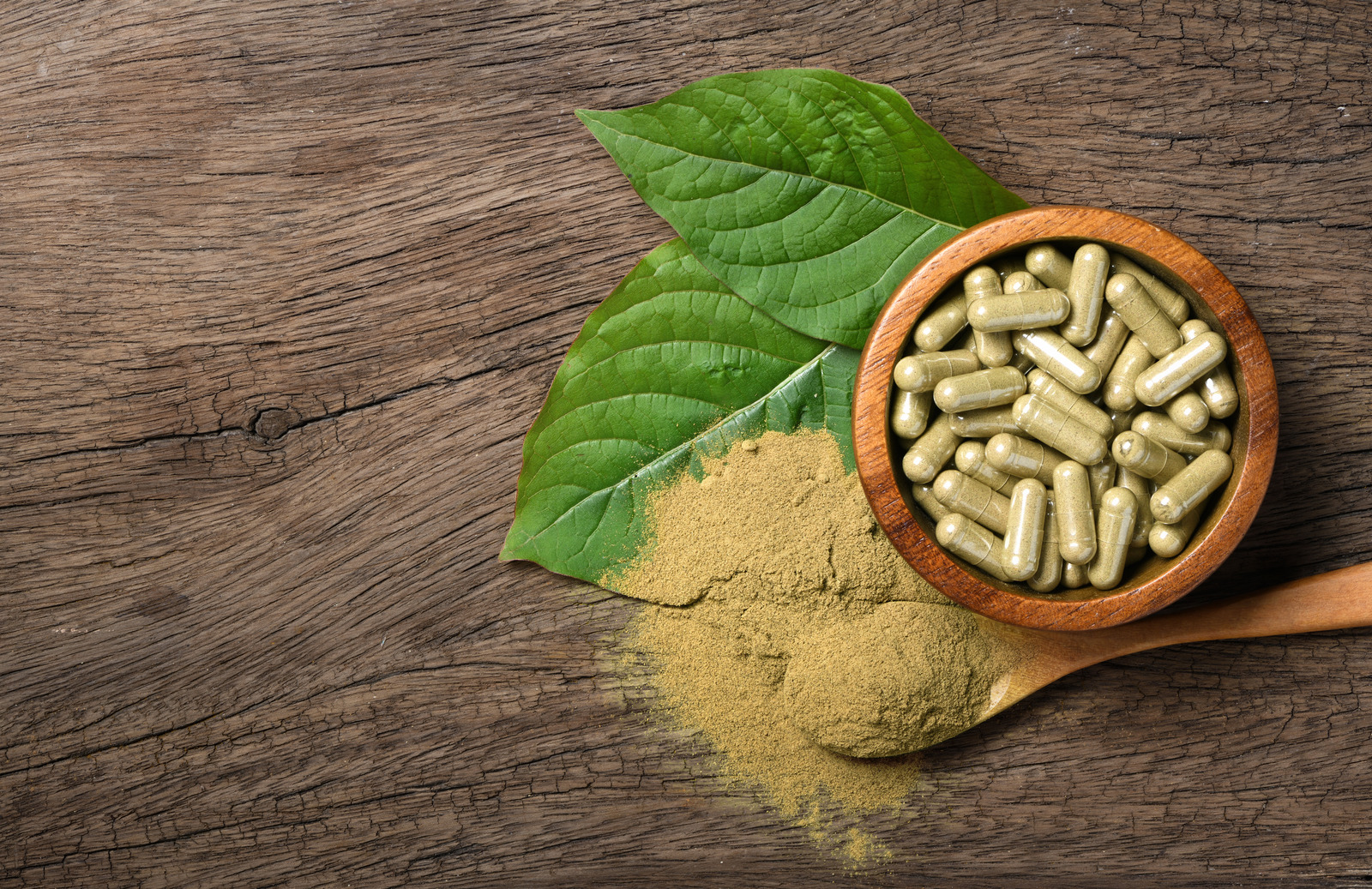
Table of Contents
One of the biggest challenges when it comes to regulating or dealing with the problems associated with drug use in modern times is that many new drugs are hitting the market. Many people look for new and potentially legal ways to get high without realizing that many of the products they ingest aren’t well understood and may be dangerous.
We also now have access to more natural and synthetic drugs that can be marketed and available for a long time before their real risks come to light.
Kratom is one of those drugs. While kratom is a naturally occurring substance, many health claims associated with the drug haven’t been proven or well investigated, and there may be additional risks that we don’t yet know. Plus, there are already well-known risks associated with kratom use.
But does kratom show up on drug tests? Can a drug test tell you if someone you love, especially a child or your partner, is using this drug? What about workplaces? Can you send someone for a drug test if you suspect they are high on kratom?
In this article, we’ll discuss whether kratom shows up on drug tests, what kratom is, and some of the risks and side effects associated with kratom use.
What Is Kratom?
First, don’t feel bad if you didn’t know what kratom is before reading this article. While kratom is gaining popularity, it’s only been a common product for a few years, and most people still aren’t familiar with it.
Kratom is a naturally occurring drug derived from a tree native to Southeast Asia, which often goes by the same name and the drug created from it.
Functionally, kratom seems similar to opioid drugs and can be used for pain relief and euphoria.
However, some serious safety issues come with using kratom, which isn’t necessarily a pain reliever that could replace opioid medications. There is also thought to be a continued addiction risk with kratom, which means that even if we discover it’s a reliable pain reliever (which has yet to be established), the potential benefits would still need to be weighed against the risk of addiction.
Is Kratom Legal?
As of this writing, there are no federal prohibitions [1] against kratom use, but several states and local areas have restricted kratom use and sales.
Other states are attempting to keep some level of kratom use legal while still restricting access to the drug through regulations.
That said, kratom’s legal status doesn’t mean the drug is safe to use. This is very much a case of kratom being new and sold in a way that helps the drug avoid some of the more scrutiny and regulation that most drugs need before becoming publicly available.
Since kratom is typically sold as a supplement rather than a drug, it’s harder to legislate against kratom use. However, most medical experts think it is unsafe, and the potential benefits aren’t worth the established risks.
Does Kratom Show Up On Drug Tests?
Currently, kratom does not appear on most drug tests and may be difficult to detect using established testing means or protocols.
That doesn’t mean that kratom isn’t a drug or that it isn’t dangerous.
Remember, drug tests usually look for extremely specific chemicals and compounds that directly result from the breakdown of those chemicals. A drug test designed to detect marijuana, for instance, probably isn’t going to tell you if that person is using opioids or cocaine.
Because kratom is a different kind of drug, a different chemical, and isn’t all that similar to other drugs on a molecular level, you need more specific tests to detect it.
A 10-panel, or more, drug test will typically detect kratom, but 5-panel drug tests are much more commonly used. Using a 10-panel drug test, kratom can be detected up to 7 days after taking the drug, where it likely wouldn’t show up in a less thorough test.
Is Kratom Dangerous?
If you were to ask an expert whether kratom is dangerous, they might answer that it depends on the definition of danger.
The consensus is that kratom’s potential risks outweigh its potential benefits, especially when you factor in the risk of addiction. Kratom users have reported many symptoms, including nausea, constipation, tachycardia, liver damage, hallucinations, and aggression.
Risk Of Addiction
One of the problems with kratom is that we don’t fully understand how quickly or aggressively addictive it might be.
For some people, a single use of kratom might be enough to give them cravings and withdrawal symptoms, similar to how some smokers become addicted to tobacco after a single cigarette.
Other people may report having used kratom for a long time without any side effects or signs of addiction, but since the issue hasn’t been well studied, we only have their word to go on.
The studies on kratom indicate that users often have mild to moderate withdrawal [2] symptoms after using it. Kratom is considered especially risky when it comes to addiction because the drug appears to work on the same kinds of receptors and brain areas associated with drug addiction.
Why Do People Use Kratom?
With all of these known and potential risks, including the risk of developing an addiction or damaging your liver through kratom use, why do people use it?
Well, there are a few reasons.
For one thing, kratom being federally legal leads many people to believe that the drug is safe, thinking that it survived a review process and that its risks don’t merit legal restrictions. Unfortunately, a drug’s legal status isn’t always a good predictor of its risks, especially for relatively new drugs like kratom.
People may also be convinced to try kratom because it’s sold as a stress reliever and a potential treatment for chronic pain. People dealing with chronic pain or chronic stress may be willing to try anything to relieve the symptoms of their condition, including using a potentially dangerous drug like kratom.
Lastly, people may start using kratom because they have heard that it’s fun, helps with minor health conditions like insomnia, or simply because it’s often cheap and easy to get. In places where the state hasn’t restricted kratom use, it may even be available to teens, who may use kratom simply because it’s available.
Unfortunately, no matter how understandable the potential motivations behind kratom use may be, there are still plenty of side effects and risks that you should be aware of before trying kratom, which makes kratom dangerous.
Side Effects And Risks Of Kratom
It’s important to understand the potential side effects and risks of any drug, but especially important to understand the side effects and risks of kratom due to its accessibility.
It’s also important to recognize these side effects and risks even if you never intend to take this drug yourself. That way, you’ll be better prepared to spot it if someone in your life starts using or is considering using kratom.
Remember, these are just the known side effects of kratom. There may be additional side effects, rare interactions, and health effects that aren’t yet well understood. So contact Oceans Recovery to learn more about our programs and get started on your path to an addiction-free life today!
- Nausea
- Aggression
- Hallucination
- Difficulty breathing
- Constipation
- Dizziness
- Drowsiness
- Confusion
- Tremors
- Seizures
- High Blood Pressure
- Liver damage
- Vomiting
While some of these side effects are very rare, they should all be taken seriously and understood for what they are.
Signs Of Kratom Addiction
Like any addiction, kratom addiction is as much about the psychological symptoms associated with the addiction as it is about any physical signs or symptoms.
Worrying that you might have an addiction to kratom, as a regular user, can be a pretty solid indicator that you might be addicted. Here are a few other common signs or symptoms of kratom addiction. [3]
- You feel sick without using kratom
- You worry about what other people might think if they knew how much kratom you use or how often you use it
- You have to take more kratom than you used to to get the same effects
- You feel like you’re yourself only when you’re using kratom
- You have or have considered using kratom while at school or work
- You have or have considered using kratom to help you cope with high-stress situations
- You have or have considered using kratom to get through a presentation or social event
- You feel like you don’t have complete control over your kratom use
- You have to spend more and more money on kratom to manage your cravings, even if you can’t afford to.
There are many other signs and symptoms of kratom addiction. These are just some of the most widespread.
Even if you are dealing with a kratom addiction, remember there is help for you. You don’t have to deal with your addiction alone.
Ready To Overcome Kratom Addiction?
Treating kratom addiction is complicated because many people, including doctors and addiction groups, aren’t familiar with the drug or how to get people through the withdrawal period after stopping taking the drug.
The good news is that residential treatment centers are more familiar with kratom and have been helping people overcome kratom addiction since its introduction in the United States.
If you need extra support and the help of experts to overcome your kratom addiction, you deserve to get that help. Contact Ocean Recovery today.
Sources:
- Sprout Health Group. (n.d.). Is kratom legal? kratom legality by state. Retrieved from https://www.sprouthealthgroup.com/substances/is-kratom-legal-by-state/ on 2023, January 7
- National Library on Drug Abuse. (2022, March 25). Kratom. Retrieved from https://nida.nih.gov/research-topics/kratom on 2023, January 7
- Pugle, M. Verywell Health.(2022, April 12). Is kratom addictive? Retrieved from https://www.verywellhealth.com/is-kratom-addictive-5219805 on 2023, March 25






